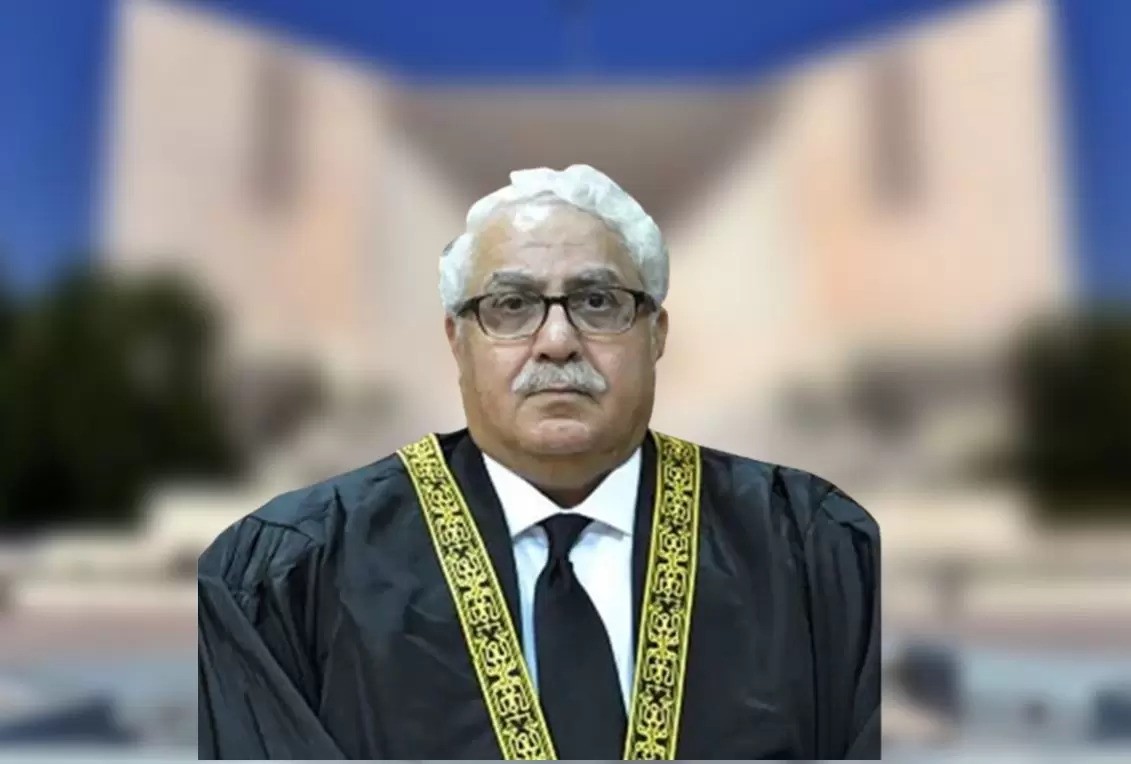Judge Sayyed Mazahar Ali Akbar Naqvi resigned as a judge at the Supreme Court of Pakistan on Wednesday, saying he could no longer continue.
Naqvi has been accused of misconduct and is involved in an ongoing case before the Supreme Judicial Council (SJC) in this regard.
A day earlier, the Supreme Court had rejected Naqvi’s request to drop the ongoing misconduct case at the SJC.
Naqvi submitted his resignation to President Dr. Arif Alvi. He wrote that it was an honor for him to serve as a judge at the Lahore High Court and later at the Supreme Court of Pakistan.
“In the circumstances, some of which are well known, it is no longer possible for me to continue to serve as a Judge of the Supreme Court of Pakistan,” Naqvi said in his resignation.
“Careful process considerations are also crucial. Therefore, with effect from today, I am resigning as a Judge of the Supreme Court of Pakistan.
A three-member bench headed by Justice Aminuddin Khan and comprising Justice Jamal Khan Mandokhail and Justice Musarrat Hilali heard Justice Naqvi’s petition.
During the proceedings, Justice Mandokhail pointed out that Naqvi had alleged in his constitutional petition that the complaints filed against him with the SJC were based on bad faith.
During the final hearing of the case on Monday, the court expressed surprise that Judge Naqvi did not name the plaintiffs as defendants.
Naqvi’s lawyer Makhdoom Ali Khan referred to Judge Qazi Faez Isa’s case, saying the complainants were not named as accused.
However, Justice Aminuddin Khan rejected this claim and said Justice Isa had named the plaintiffs, including the asset recovery unit, as defendants.
Makhdoom Ali Khan said that when the SJC decided to grant Naqvi the first plea on October 27, it dismissed 21 other complaints against other judges without hearing the complainants.
“If the complainants are made respondents in Justice Naqvi’s case, all those whose complaints were dismissed without hearing will file an application under Article 184 (3) against this decision,” Khan argued.
Justice Aminuddin Khan noted that the Supreme Court was in the process of deciding the issue.
“The court is of the opinion that the summons must first be served on the plaintiffs. Otherwise, the process cannot continue,” he said.
The lawyer argued that if the court opened its doors to the plaintiffs in the case, many people would rush to the apex court to file complaints against the judges.
Justice Aminuddin Khan pointed out that it was the judges and not the complainants who had approached this court. “The court could have taken other steps if the plaintiffs had not been named in your petition.
Justice Mandokhail said the court was of the view that it could not take a decision without hearing the complainants, adding that justice should not only be done but also seen.
“We don’t want to give everyone the opportunity to point the finger at the jury. Either the complaint submitted to the Council must be so substantial and complete that no judge can avoid it, or the Council must take strict action against unfounded complaints.
“There should be no middle ground. There is a lot of money involved in the legal profession; People become judges because of the respect that comes with the position,” he said.
The court then asked Judge Naqvi to file an amended motion naming the plaintiffs as defendants. When Naqvi’s lawyer asked the court to stay the SJC proceedings, Judge Aminuddin replied that he had not yet heard the merits of the case.

